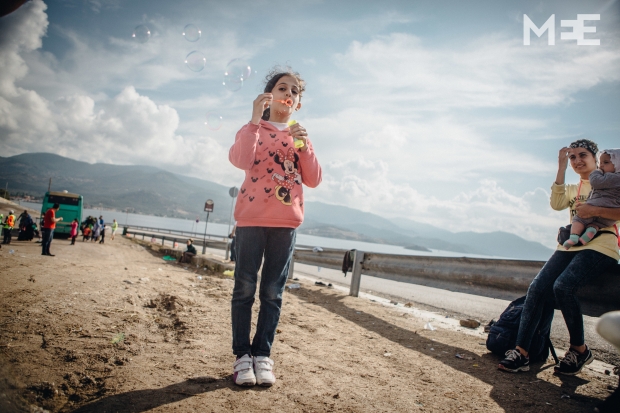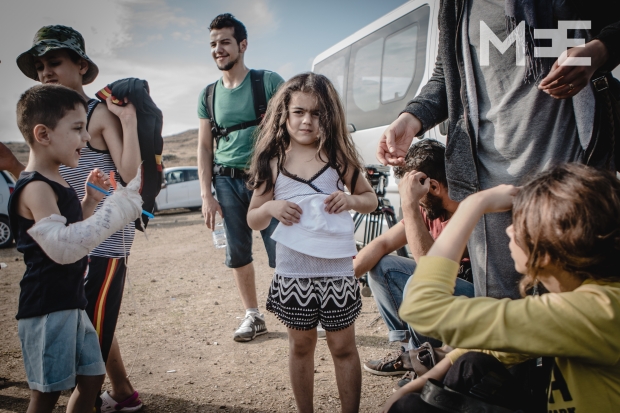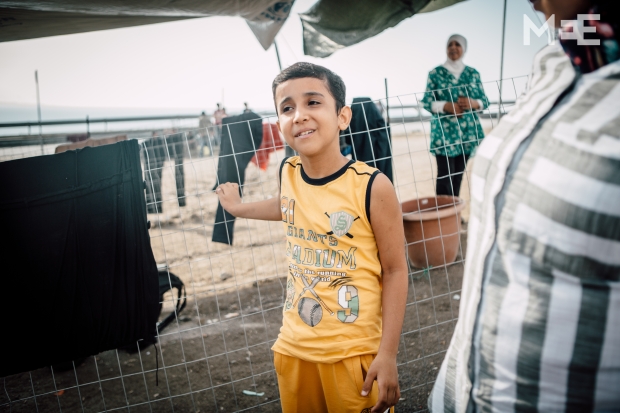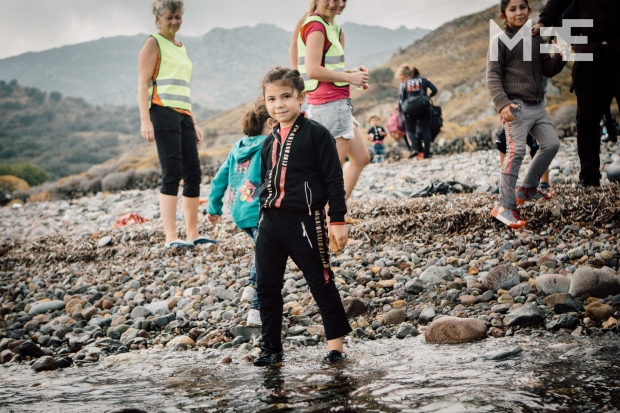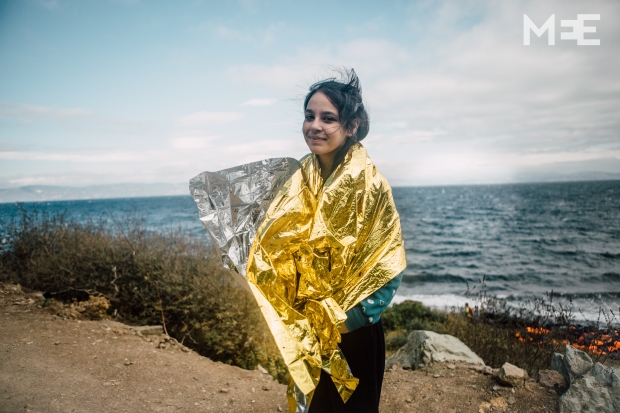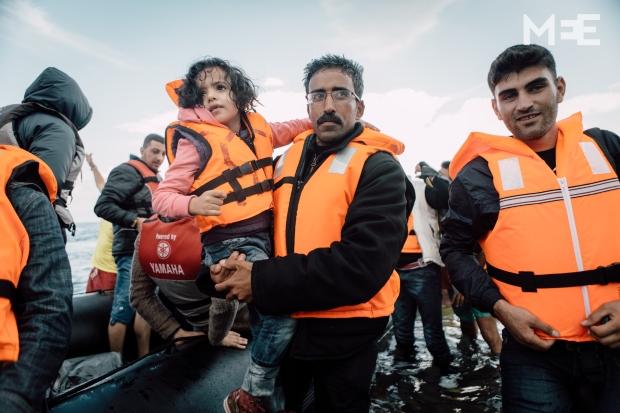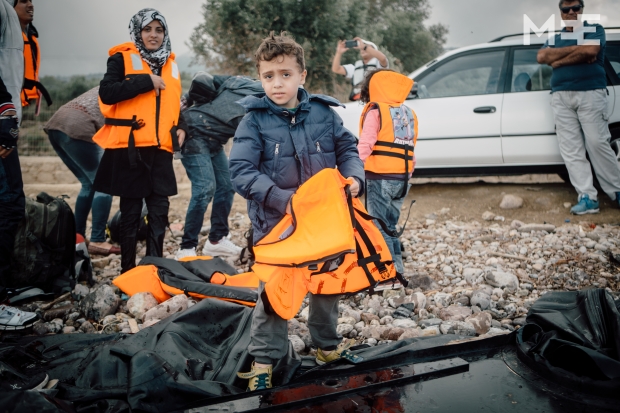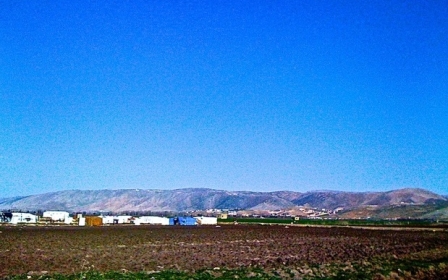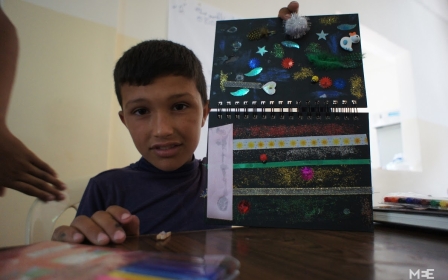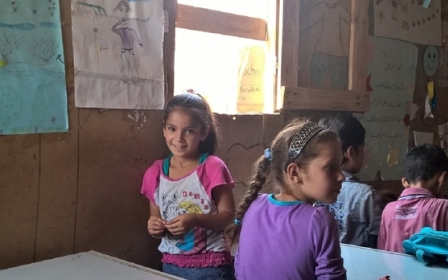The children of the refugee crisis speak
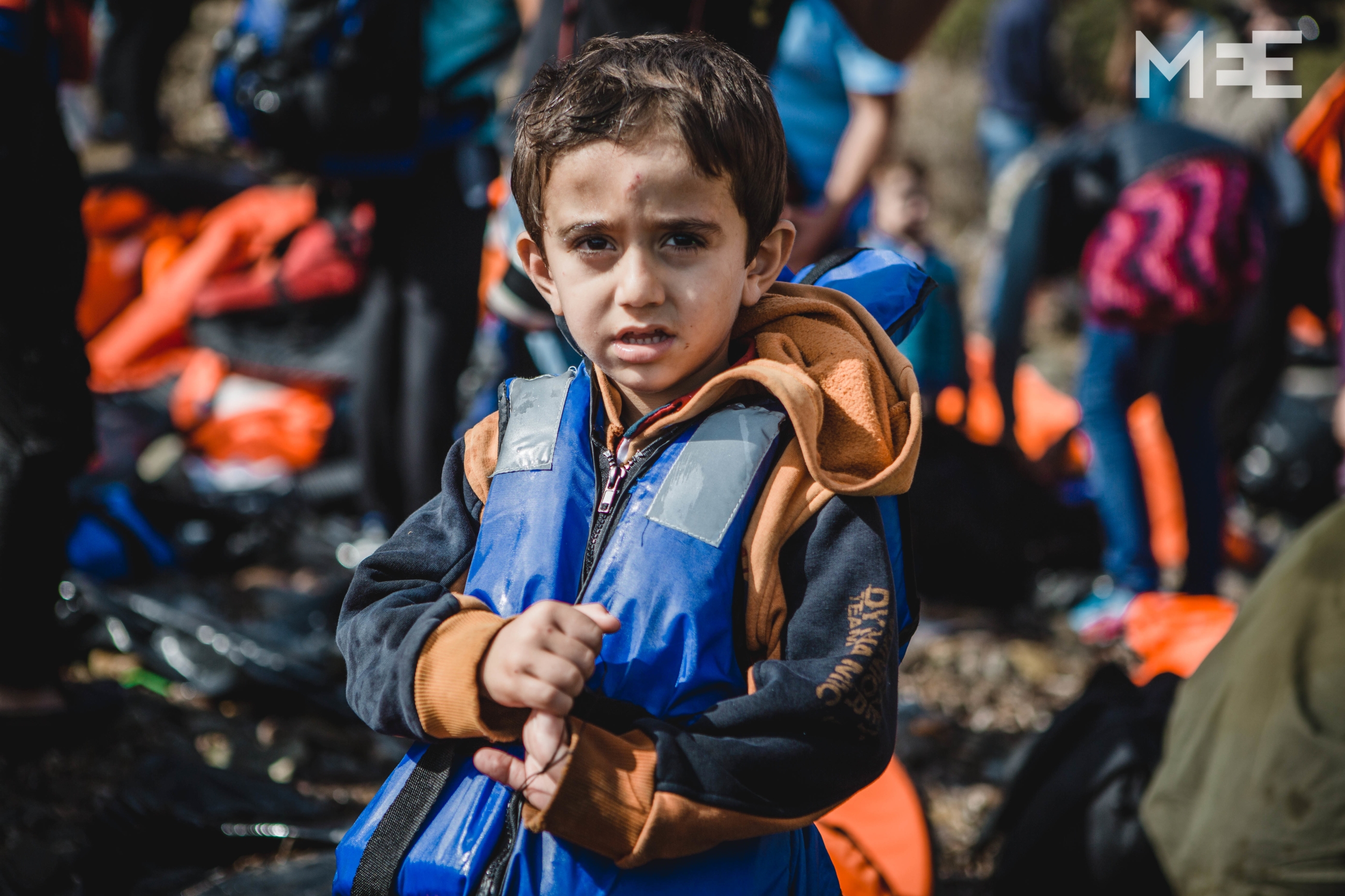
LESBOS, Greece – With 3,000 refugees still continuing to make the dangerous sea crossing by boat every day from Turkey to Lesbos, the Greek island remains at the forefront of Europe’s refugee crisis. The plastic dinghies that refugees arrive in can be crammed with over 50 people, with engines often breaking down during the journey, leaving the boat to dangerously drift in the Aegean Sea.
After surviving the horrors of war, and the perilous journey over the sea, Middle East Eye spoke to some of the children who made the trip about their hopes for the future, Europe and their home countries.
Jala, 10 years old, Syria
What do you know about Europe?
“I thought Europe was just one country when my father first said we would go there. But then he told me we would go to Germany, so now I know Europe is many countries.”
What will be the first thing you do when you arrive in Germany?
“I love drawing and I know how to draw houses and flowers. My sister Rinda taught me how to draw roses. So the first thing I will do will be to draw the flowers and houses in Germany.”
Despite being just five years old, Rose can recognise the different sounds of artillery fire. “All the children know those sounds,” her mother Iman says, “she had no future there, none of them do.”
What do you think of Syria?
“Syria is a dog. It’s not good.”
What do you know about Europe?
“There is no war in Europe, and I can go to school there.”
Ali, eight years old, Afghanistan
Ali never let go off his little sister’s hand during the boat journey – he was scared, and he knew his sister would be too. After fleeing violence in Afghanistan, and surviving the dangers of the Aegean Sea, his family now hope to resettle in Switzerland.
What do you think about going to Switzerland?
“I’m excited about being in a country that is not too hot and not too cold!”
What do you look forward to most when you finally arrive in Switzerland?
“I’m just going to be happy, I’m going to do everything and be everywhere.”
Lucelle, five years old, Syria
At five years old, Lucelle has spent almost all of her life in Syria’s deadly civil war. As the youngest member of her family, she remembers nothing else of her homeland but the bombs.
What is Syria?
“Syria is war and bombs everyday.”
What do you think of Europe?
“It is a new life and I can go to school there.”
Jawar’s boat drifted for five hours after the engine failed before managing to make it to land. Soaked and emotional, many of the refugees broke down in tears when they realised they were going to live. For Jawar, stepping onto the Greek coastal road and starting her long walk to Belgium – her family’s final destination – meant she could start dreaming about her future ambitions again.
What do you want to be in the future?
I want to be a pharmacist, it’s a good job I think. In Syria, there were bombs and shootings every day, and I was scared everyday. But now that I’m here, I don’t have to be.
Jenan, six years old, Syria
After Jenan’s father was shot and killed in Syria, her mother and grandmother made the decision to flee the country. Jenan’s uncle held on to her throughout the stormy boat ride, carrying her off the boat and finally onto the Greek coastline.
What do you think of Syria?
We moved from place to place because of the war, to try and be safe. In Syria I was scared everyday.
Ahmad, seven years old, Syria
Ahmad, Jenan’s brother, came off the boat wet, cold and shivering after waves battered the plastic dingy throughout the journey. After losing his father in Syria, and spending half of his life in war, he is looking forward to going back to school again.
What does Europe mean for you?
Europe means I can learn again, go to school, and I can learn a new language.
Middle East Eye propose une couverture et une analyse indépendantes et incomparables du Moyen-Orient, de l’Afrique du Nord et d’autres régions du monde. Pour en savoir plus sur la reprise de ce contenu et les frais qui s’appliquent, veuillez remplir ce formulaire [en anglais]. Pour en savoir plus sur MEE, cliquez ici [en anglais].


